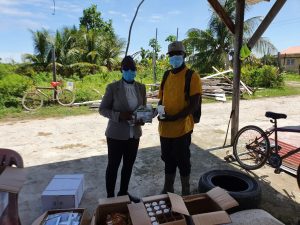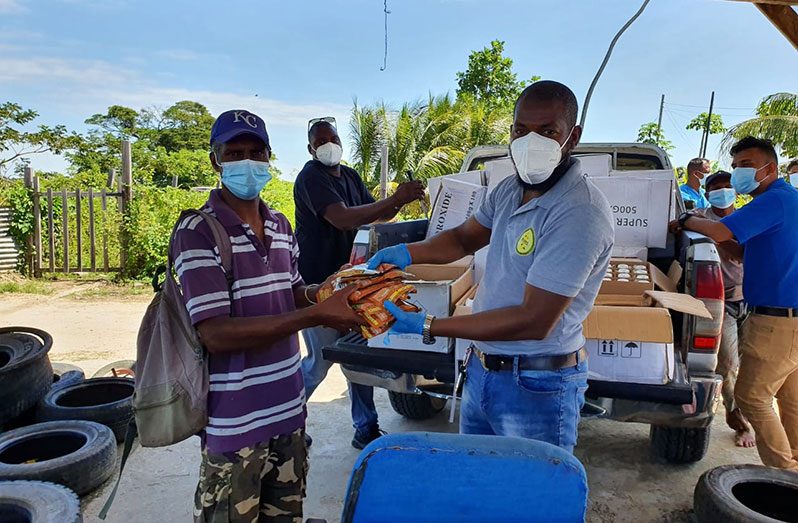GUYANESE enjoy the refreshing flavour of passion fruit juice, so much so, that many agro-processors include it in their product line. Farmers are equally satisfied with the demand for this fruit and the price it carries on the local market. As such, when their livelihood was being threatened by pests and diseases they reached out to the National Agricultural Research and Extension Institute (NAREI).
The two areas that benefitted from NAREI’s intervention thus far are Wakenaam, Region Three and Hope Estate, Region Four. A team of Research Scientists of NAREI’s Plant Pathology, Entomology and Weed Science Department are actively addressing the challenge.
According to NAREI’s Research Scientist, Howard London, “A special project was designed and executed at the two locations. Both locations had major issues with fungus, scale insects and mirid bugs. These were managed using a number of scientific interventions over a 10-week period.”
 The fungal diseases caused flaws on leaves, flowers and fruit and in some cases abortion of fruits and flowers. Passion fruit scab causes scabby lumps on fruit, which may then shrivel and drop. Additionally, scale insect which sucks the plant saps causes significant stress to the plant. These insects produce honeydew which is ideal for the development of secondary infections and reduction of photosynthesis by covering the leaf.
The fungal diseases caused flaws on leaves, flowers and fruit and in some cases abortion of fruits and flowers. Passion fruit scab causes scabby lumps on fruit, which may then shrivel and drop. Additionally, scale insect which sucks the plant saps causes significant stress to the plant. These insects produce honeydew which is ideal for the development of secondary infections and reduction of photosynthesis by covering the leaf.
Of course, NAREI responded using an Integrated Pest Management (IPM) approach in treating the situation. IPM is a broad-based approach that integrates practices for economic control of pests. IPM aims to suppress pest populations below the economic injury level.
IPM emphasizes the growth of a healthy crop with the least possible disruption to agro-ecosystems and encourages natural pest control mechanisms. The scientists involved in this intervention have urged the adoption of IPM pest control in Guyana.
NAREI also distributed chemicals to the affected farmers. They were informed of the quantity and timing of application of chemicals. For information on this, farmers could call telephone number 220-2072 or Whatsapp on 627-1339.
About 60 farmers benefitted from the intervention. The framers were pleased with the timely intervention and extremely satisfied with the results.



.jpg)








